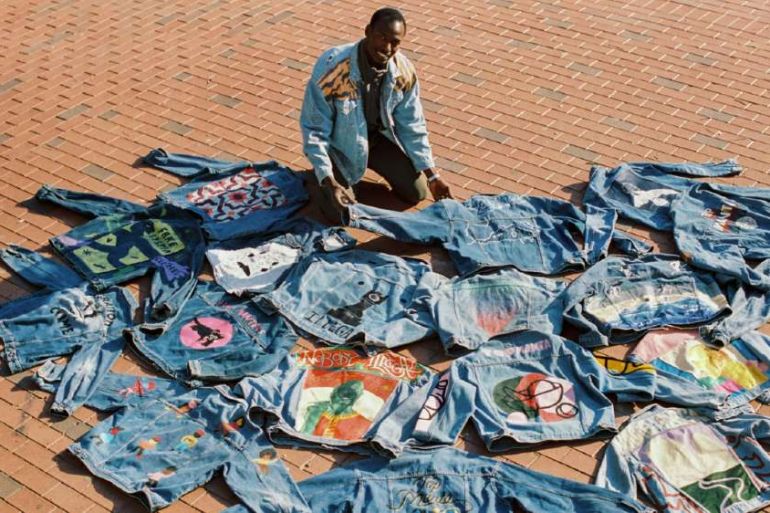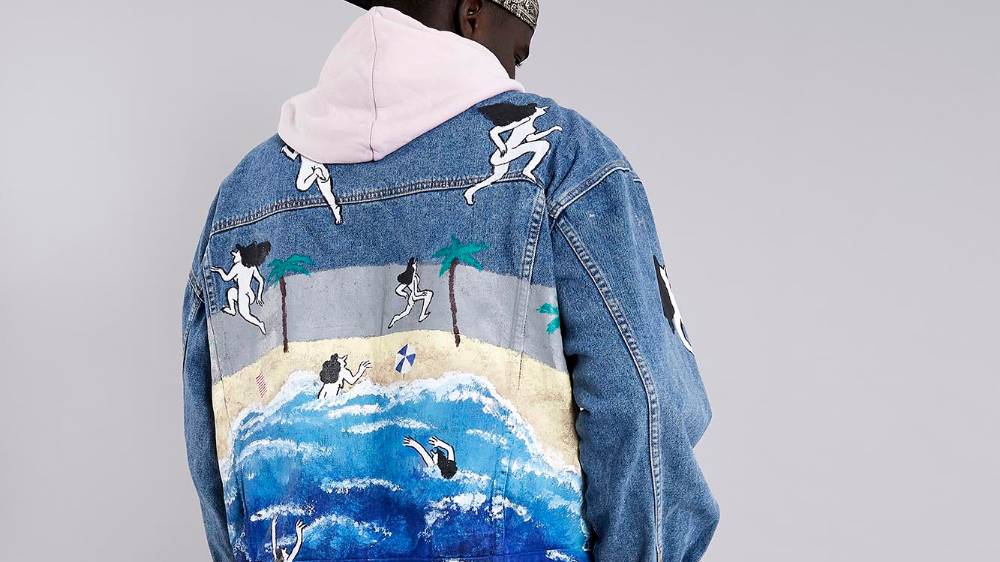Top Manta: Spain’s street sellers taking on the fashion world
Leading artists have teamed up with a group helping migrants in Spain to work legally.

Barcelona, Spain – They are used to selling their work to major fashion brands, or seeing it appear in the pages of publications such as The New Yorker magazine.
Now a group of 20 leading Spanish graphic artists are offering their art to help mostly African migrants who get by selling fake designer football shirts, handbags or sunglasses to well-heeled tourists.
Keep reading
list of 4 itemsUN report charts lethal cost of migration over past decade
Conflict, climate, corruption drive Southeast Asia people trafficking: UN
Bodies of three Rohingya found as Indonesia ends rescue for capsized boat
Twenty limited edition denim jackets will be used as the prize in a one-off lottery to help Top Manta, an organisation named after the sheets on which many street sellers display their wares.
The association, which is run by former “manteros”, as they are known in Spanish, seeks to help migrants leave this hand-to-mouth life and find steadier jobs.
Among the designs, one jacket shows a black panther, along with the slogan Black Mantas; it is clearly a play on words linked to the black power organisation.
Another jacket shows migrants emerging from the sea. To some it might seem nothing more than a colourful design, but for many street sellers, it is a very real reminder of how they made it to Europe in the first place.

For Aziz Faye, a 36-year-old former fisherman from Senegal, the analogy of the sea brings back memories of how he risked his life twice to begin a new life here in Spain.
In 2007, he sailed in a flimsy boat from Mauritania in western Africa to Tenerife in the Canary Islands.
After eventually reaching Barcelona, he was then deported because he was illegally in Spain.
Seven years later, and after two more attempts, he finally won permission to stay.
“As I was a fisherman, I was used to the sea and how it can be. Luckily for me each time I made the crossing, the sea was calm. I wasn’t frightened,” he told Al Jazeera.
In 2015, he started selling scarves on the street, but wanted to find a way to escape this life.
“People in the street are treated worse than animals. We face such violence from people,” said Faye, a married father of twin boys.
“They find us guilty for selling the goods which they say are illegal. But it is not us who brings in these things. It is easy to blame the poorest people in society.”
Faye helped set up the Top Manta association to help street sellers to get the legal right to work.
Under Spanish law, a migrant from most African states must live in the country for at least three years before they can start the complex process of applying for permission to work legally.
While they wait for the chance to work, they must scratch out a living on the streets.
The presence of the top manta sellers on the streets has prompted controversy in Spain, with some conservative politicians insisting they are menaces who encourage organised crime.
Manuel Valls, the former French prime minister who stood for mayor of Barcelona as a liberal in elections in May, said the top manta sellers were “led and run by an illegal mafia for their own benefit”.
“It is an illegal occupation which occupies public spaces which are for everyone,” he said.
Ada Colau, the left-wing mayor of Barcelona, proposed an amnesty to allows street sellers to work legally.
However, she has since come under political pressure to crack down on the sellers in prominent tourist areas.

Last year, Top Manta opened the doors of its first bricks-and-mortar shop, selling its own designer T-shirts, sweatshirts and sportswear. The company’s logo is, of course, a blanket.
The shop, in the Raval neighbourhood of Barcelona, one of the city’s poorest quarters, provides work for 10 machinists.
The place may lack the slick presentation of many clothes shops in this city, but Faye says the staff have an opportunity to employ skills they learned in their own countries.
“For some sewers, they can use their own skills and make a new life here,” he said.
Cheikh Bayfall, 40, is busy making T-shirts when Al Jazeera arrives at the Top Manta shop.
The 40-year-old from Senegal arrived in Spain in 2000 after scaling the three-metre barbed wire fence that separates Morocco and Melilla, a Spanish territory in North Africa.
He then hid in a car that drove to the Spanish mainland. Eventually, he made it to Barcelona, where he started working on the streets.
“I work here in the shop most of the time, but I still have to work at times in the street as a mantero to earn enough to live,” he told Al Jazeera.
This may shortly change, as Top Manta is about to open a second shop and advertises its products through an Instagram account.
Marc Pallares recently had one of his illustrations published in The New Yorker magazine and frequently sees his work appear in other influential media in Spain and beyond. He’s one of the artists who has contributed a design for the clothes lottery, and said he wanted to help those less fortunate than himself.
“Most of the artists or illustrators involved have led quite privileged lives in comparison to the top manta sellers and wanted to help by offering our designs,” he said.
“This is a real problem not just on the streets of Barcelona, but everywhere.”